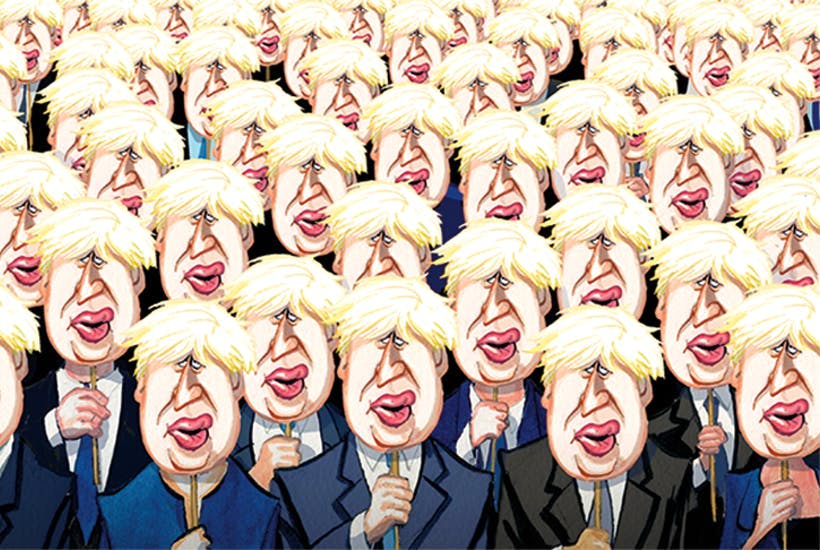Exactly 40 years ago tomorrow, four Labour party grandees issued the Limehouse Declaration, signalling ‘the re-emergence of social democracy in Great Britain’. The declaration, made on a windswept bridge near the east London home of Dr David Owen, marked the formation of a Council for Social Democracy, that soon became a fully-fledged political party, the SDP. The ‘gang of four’ very nearly succeeded in breaking the mould of British politics, as their moderation hit the spot with millions of voters who opposed Thatcherism but also recoiled from Labour’s radical socialist agenda of the time.
But they were thwarted, first by Britain’s first past the post electoral system that made gaining a big parliamentary representation all but impossible. And then by Labour’s slow march back towards the centre ground. The leading lights of the SDP dispersed across British politics as they searched for a suitable vehicle in which to advance their ideas.
Roy Jenkins, Shirley Williams and Bill Rodgers — the other three in the Limehouse gang of four — signed up to a merger with the Liberal party, founding the Liberal Democrats. Owen soldiered on for a while, leading an ever-diminishing band of SDP diehards, before ending up in the House of Lords as an independent social democrat.
Arguably there is one man who has made social democracy work electorally
The likes of David Sainsbury and Andrew Adonis eventually went back to Labour, going on to become leading Blairites. Greg Clark, Danny Finkelstein and a clutch of other bright young SDP-ers joined and rapidly rose within John Major’s Tory party. Thus did social democracy become arguably the most influential philosophy in modern British politics, but also the least successful at progressing electorally under its own steam.
Even today, the core tenets of social democracy — accepting capitalism as the best model for the production and distribution of ordinary goods and services but creating an active and redistributive state to tame its excesses and make up for its shortcomings — are at the sweet spot of British public opinion.
But, just as in the 1980s, the Labour party is proving a far from satisfactory vehicle. While Keir Starmer has rescued his party from the doctrinaire socialism of Jeremy Corbyn — rather as Neil Kinnock did from that of Michael Foot and Tony Benn — another old fault line has re-emerged. This is between pro-globalist progressives who passionately support the project of European political integration (and also those attracted to left-wing identity politics) and those more traditionally-minded social democrats who believe in the nation state as an essential rallying point for social solidarity.
Labour is fully in the clutches of the former tribe, aside from one or two brave and isolated ‘Blue Labour’ exponents such as the pro-Brexit trade unionist Paul Embery. The other social democrat tradition has assembled under the banner of a reconstituted and rejuvenated SDP, the party to which both I and Rod Liddle belong, under the leadership of William Clouston and guided by a ‘New Declaration’ that emphasises the nation state as something that ‘reflects a deep and genuine human need for belonging’.
It is a tension which existed within the original gang of four, with Owen becoming more and more critical of the EU until turning outright Brexiteer, while Jenkins and Williams were always true believers in the cause of European political union. The Owenite tradition is, of course, the authentic one, taking as its founding script the speech made against Common Market membership by the then Labour leader Hugh Gaitskell at the 1962 Labour conference.
‘We are not just a part of Europe, at least not yet,’ said Gaitskell, ‘We have a different history, we have ties and links which run across the whole world. If this is the idea — the end of Britain as an independent nation state… the end of 1,000 years of history – you may say ‘all right then, let it end’ but, my goodness, it is a decision that needs a little care and thought.’
Gaitskell died tragically early — just a few months after making that speech, and while apparently on course for power — and the patriotic social democrat tradition was knocked back, though kept alive by the likes of Peter Shore. Four decades after Limehouse, it is still the great untested contender of British politics, always marginalised by avowed socialists or ardent globalists crowding onto the same party ticket.
But arguably there is one man who has made it work electorally — someone who got voted in as president of the Oxford Union way back in 1986 by professing his social democratic credentials, who campaigned hard for Brexit on national sovereignty grounds and who believes in a well-funded and interventionist state that ‘puts its arms around people at a time of crisis’.
But once Thatcherite Tories wake up to the notion that a social democrat is leading them, there could be hell to pay.







Comments